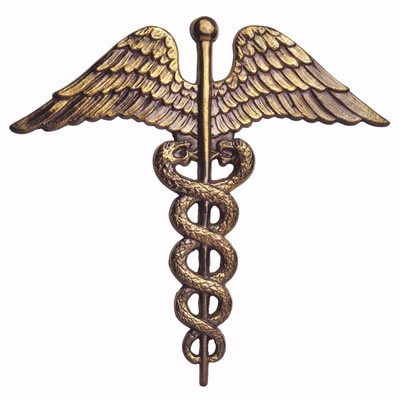|
This e-newsletter is sponsored by
|
|
Contact Us | |
American Society of
Bariatric Physicians
2821 S. Parker Road, Ste. 625
Aurora, CO 80014
office 303.770.2526 | asbp.org
Staff
Laurie Traetow, CPA
Executive Director
laurie@asbp.org
Carly Crosby
Administrative Intern
carly@asbp.org
Heidi Gordon
Director of Marketing &
Communications
heidi@asbp.org
Anna Hansen
Membership &
Exhibit Sales Manager
anna@asbp.org
Dana Mansell
CME Director &
Business Manager
dana@asbp.org
Stacy Schmidt, Ph.D.
Health Director
stacy@asbp.org
|
|
|
|
Obesity Medicine e-Weekly |
|
News
ASBP introduces improved and enhanced website
 The Society is pleased to announce that www.asbp.org now has a new look and navigation structure! Specific improvements include easier navigation to the most-visited sections of the site, one-click log-in to areas of the members-only portal (noted by padlock icons) and an improved patient resource directory. Please visit the website and send your feedback to Director of Marketing & Communications Heidi Gordon. NOTE: The Society asks that you carefully review your own listing on the new patient resource directory, Find an Obesity Medicine Clinician, and submit changes to info@asbp.org. The Society is pleased to announce that www.asbp.org now has a new look and navigation structure! Specific improvements include easier navigation to the most-visited sections of the site, one-click log-in to areas of the members-only portal (noted by padlock icons) and an improved patient resource directory. Please visit the website and send your feedback to Director of Marketing & Communications Heidi Gordon. NOTE: The Society asks that you carefully review your own listing on the new patient resource directory, Find an Obesity Medicine Clinician, and submit changes to info@asbp.org.
Nutrition and wellness tips for young children: Provider Handbook for the Child & Adult Care Food Program  A new provider handbook, developed by the U.S. Departments of Agriculture Food (Nutrition Service) and Health and Human Services (Administration for Children and Families), Centers for Disease Control and Prevention, and Health Resources and Services Administration, helps childcare providers create healthier environments for the children in their care. It includes a series of tip sheets addressing wellness recommendations from the Dietary Guidelines for Americans, 2010, and Caring for Our Children: National Health and Safety Performance Standards; Guidelines for Early Care and Education, 3rd Edition. Also, the handbook includes success stories shared to highlight examples of new and exciting ways childcare programs have improved the food they serve children and the activities they plan. Click here to download complimentary PDFs of the handbook, tip sheets and related promotional material.
American Board of Obesity Medicine announces results from its first certification examination
The American Board of Obesity Medicine (ABOM) recently announced completion of its first obesity medicine certification examination and the examinee results. Two hundred and twenty six candidates took the first ABOM obesity medicine examination in November 2012. Practitioners who took the exam were physicians from across medical disciplines, concentrated in but not limited to internal medicine, family medicine, obstetrics and gynecology, pediatrics, endocrinology, surgery, preventative medicine, gastroenterology and sports medicine. For further information about ABOM and upcoming certification examinations, please visit www.abom.org.
ASBP offers members a template news release to announce your achievement of obesity medicine certification
 The Society is pleased to offer a template news release to those members who recently passed the Certification Exam for Obesity Medicine Physicians. The news release includes sample copy and customizable areas for your practice's logo and biography. Members are encouraged to use the template to distribute announcement of their achievement to their local newspapers, regional business journals, alumni magazines and other appropriate outlets. Click here to download a copy-and-paste-ready PDF of the template. Questions about using the template? Please contact Director of Marketing & Communications Heidi Gordon. The Society is pleased to offer a template news release to those members who recently passed the Certification Exam for Obesity Medicine Physicians. The news release includes sample copy and customizable areas for your practice's logo and biography. Members are encouraged to use the template to distribute announcement of their achievement to their local newspapers, regional business journals, alumni magazines and other appropriate outlets. Click here to download a copy-and-paste-ready PDF of the template. Questions about using the template? Please contact Director of Marketing & Communications Heidi Gordon.
|
Obesity Updates: Click titles to view articles
Effects of chitin-glucan fiber on oxidized low-density lipoprotein
Chitin-glucan (CG) is an insoluble dietary fiber extracted from the cell wall of fungi. The potential health benefits of this novel ingredient have been tested in animal models, and it has been shown to lower plasma triglycerides (TGs), reduce aortic cholesterol and development of fatty streaks and increase hepatic antioxidant enzyme activities. CG treatment also significantly decreased high fat diet-induced body weight gain, fat mass development, fasting hyperglycemia, glucose intolerance, hepatic TG accumulation and hypercholesterolemia, independent of caloric intake in animal studies. A randomized, double-blind, placebo-controlled, multicenter study with six weeks of intervention and four parallel intervention arms was conducted to examine the efficacy and safety of CG alone and CG with olive extract in a clinical study in hypercholesterolemic subjects. Administration of 4.5 g/day CG for six weeks significantly reduced oxidized LDL compared with placebo (P=0.035). At the end of study, CG was associated with lower LDL-C levels relative to placebo, although this difference was statistically significant only for the CG 1.5 g/day group (P=0.019). CG did not significantly affect high-density lipoprotein cholesterol, triglycerides, glucose, insulin or F2-isoprostane levels. Adverse events did not substantively differ between treatments and placebo. These results suggest that there is potential therapeutic utility of CG in patients at risk for CHD.
Does exercising before breakfast increase 24-hour fat oxidation?
Fat oxidation during exercise is suppressed by ingestion of a meal before exercise, and this effect persists for at least four hours after a meal. Many studies have examined how fat oxidation is impacted by exercise in the post-exercise recovery period, but it is still inconclusive whether or not exercise performed in the fasting state increases 24-hour fat oxidation more than exercise performed in the postprandial state. A study was conducted to determine whether 24-hour fat oxidation was affected by time of exercise relative to breakfast ( i.e., in the fasting versus postprandial state). Using a room-size metabolic chamber, effects of exercise performed before and after breakfast on 24-hour energy metabolism were compared. Results from the study indicate that during the 60 minutes of exercise, energy expenditure in the two exercise trials were equivalent, but exercise in the fasting state led to a lower respiratory quotient (RQ) compared with that in the postprandial state (P < 0.01). Lower RQ indicates greater fat oxidation. The time of exercise relative to breakfast did not affect 24-hour energy expenditure (P > 0.5); however, 24-hour fat oxidation was higher (P < 0.05) when exercise was performed in the fasting state. Greater fat oxidation is protective of weight gain over time; therefore, exercising before breakfast may be beneficial in helping to prevent weight gain.
A review of late-stage drug candidates for the treatment of obesity
With the global epidemic of obesity showing no signs of fading, many obesity medicine specialists are hopeful that some of the drug candidates, which are currently in preclinical and clinical development, will go on to deliver the improvements in efficacy with acceptable safety profiles that are so urgently needed to tackle the obesity health care problem. This review article describes the current situation for therapeutic approaches to tackle the problem of obesity, and it also discusses drug compounds in late-stage clinical development for the treatment of obesity and also future directions.
|
|
Education
Save the date for ASBP Spring Obesity Conference in San Diego on April 24-28
 Save the date for the ASBP 2013 Spring Obesity Conference in San Diego on April 24-28 at the Manchester Grand Hyatt. Further details will be announced in the near future; however, online registration is now open, or you may download and complete a PDF registration form for return via fax or USPS mail. Hotel reservations can be made online and start at $199+taxes (single/double). Save the date for the ASBP 2013 Spring Obesity Conference in San Diego on April 24-28 at the Manchester Grand Hyatt. Further details will be announced in the near future; however, online registration is now open, or you may download and complete a PDF registration form for return via fax or USPS mail. Hotel reservations can be made online and start at $199+taxes (single/double).
Obesity Basic Medical Treatment Courses this month in Ohio (Jan. 19) and Missouri (Jan. 26)
 The Obesity Medicine Association, a division of the Society, recently announced a partial list of 2013 dates and locations for the popular Obesity Basic Medical Treatment Course. Attendees earn 7 hours of continuing medical education, plus ASBP offers a $30 discount on the second and subsequent registrations received from the same office. The registration fee is $199, if received by the Wednesday prior to the course date. The course provides basic clinical information and tools to effectively treat obese patients and their related conditions. Learn more by downloading a PDF brochure. Click here to download a registration form and read details about the course. Online registration is available for these dates and locations: The Obesity Medicine Association, a division of the Society, recently announced a partial list of 2013 dates and locations for the popular Obesity Basic Medical Treatment Course. Attendees earn 7 hours of continuing medical education, plus ASBP offers a $30 discount on the second and subsequent registrations received from the same office. The registration fee is $199, if received by the Wednesday prior to the course date. The course provides basic clinical information and tools to effectively treat obese patients and their related conditions. Learn more by downloading a PDF brochure. Click here to download a registration form and read details about the course. Online registration is available for these dates and locations:
- Jan 19: Columbus, Ohio 
- Jan. 26: Independence, Mo.
- Feb. 2: Birmingham, Ala.
- Feb. 23: Raleigh-Durham, N.C.
- March 2: Buffalo, N.Y.
- March 9: Oklahoma City
- March 16: Richmond, Va.
- March 23: Louisville, Ky.
Practicing in Texas? Then, don't miss ASBP lectures during the TABS Annual Meeting in Dallas on Jan. 26
 For the first time, ASBP has been invited to offer topical obesity medicine lectures in cooperation with the Texas Association for Bariatric Surgery (TABS) Annual Meeting, which is on Saturday, Jan. 26, in Dallas. Engage with your fellow obesity care colleagues, and let's strive together for evidenced-based comprehensive obesity treatment coverage in Texas! Click here to read more information about this exciting opportunity. For the first time, ASBP has been invited to offer topical obesity medicine lectures in cooperation with the Texas Association for Bariatric Surgery (TABS) Annual Meeting, which is on Saturday, Jan. 26, in Dallas. Engage with your fellow obesity care colleagues, and let's strive together for evidenced-based comprehensive obesity treatment coverage in Texas! Click here to read more information about this exciting opportunity.
|
|
Advocacy
Farm Bill Update from FeedingAmerica
 Feeding America recently sent an update on the Farm Bill extension. Congress voted to extend the farm bill through Sept. 30, 2013, as part of the recently approved fiscal cliff package. While the bill was largely an extension of current law, there was a severe cut to the Supplemental Nutrition Assistance Program (SNAP) nutrition education to pay for an extension of dairy programs and other programs that had expired with the bill. Read one viewpoint on this issue at the blog, Off the Charts. Feeding America recently sent an update on the Farm Bill extension. Congress voted to extend the farm bill through Sept. 30, 2013, as part of the recently approved fiscal cliff package. While the bill was largely an extension of current law, there was a severe cut to the Supplemental Nutrition Assistance Program (SNAP) nutrition education to pay for an extension of dairy programs and other programs that had expired with the bill. Read one viewpoint on this issue at the blog, Off the Charts.
|
|
|
|
|